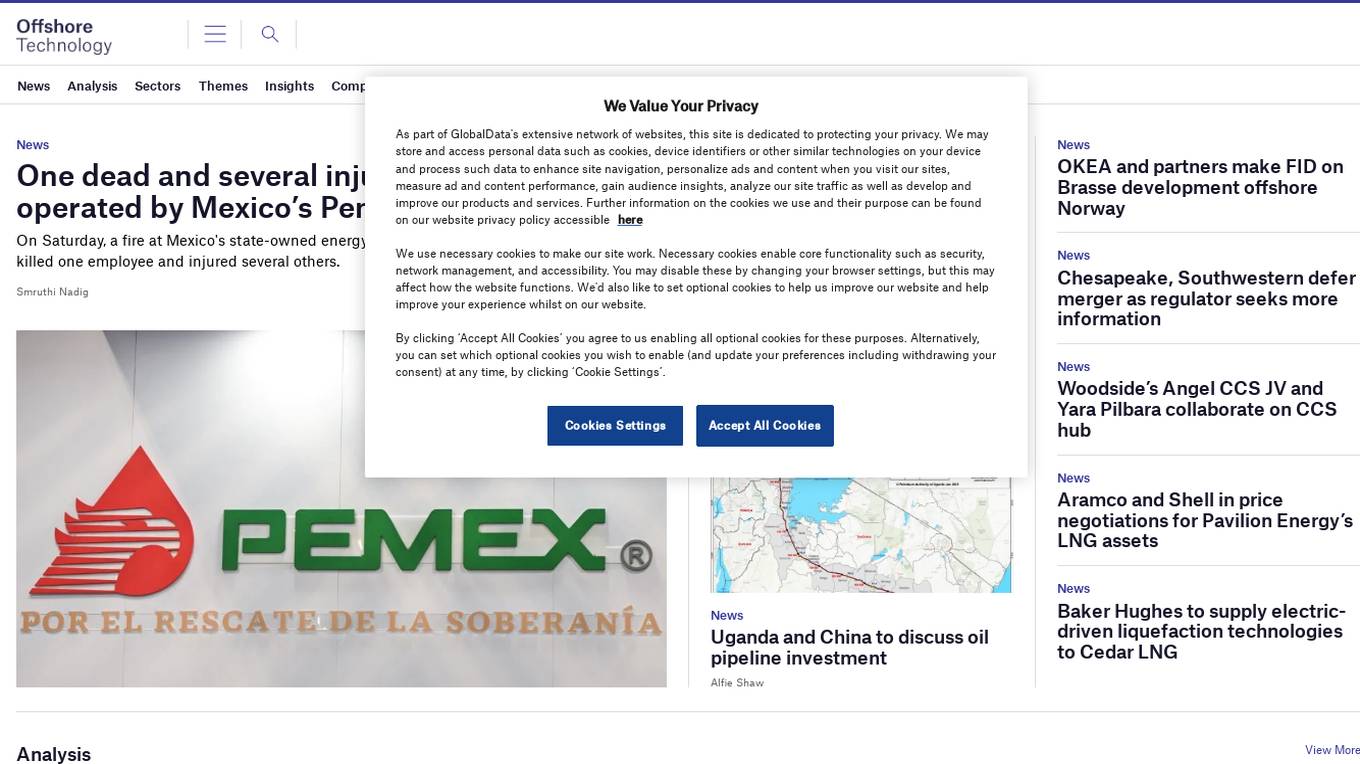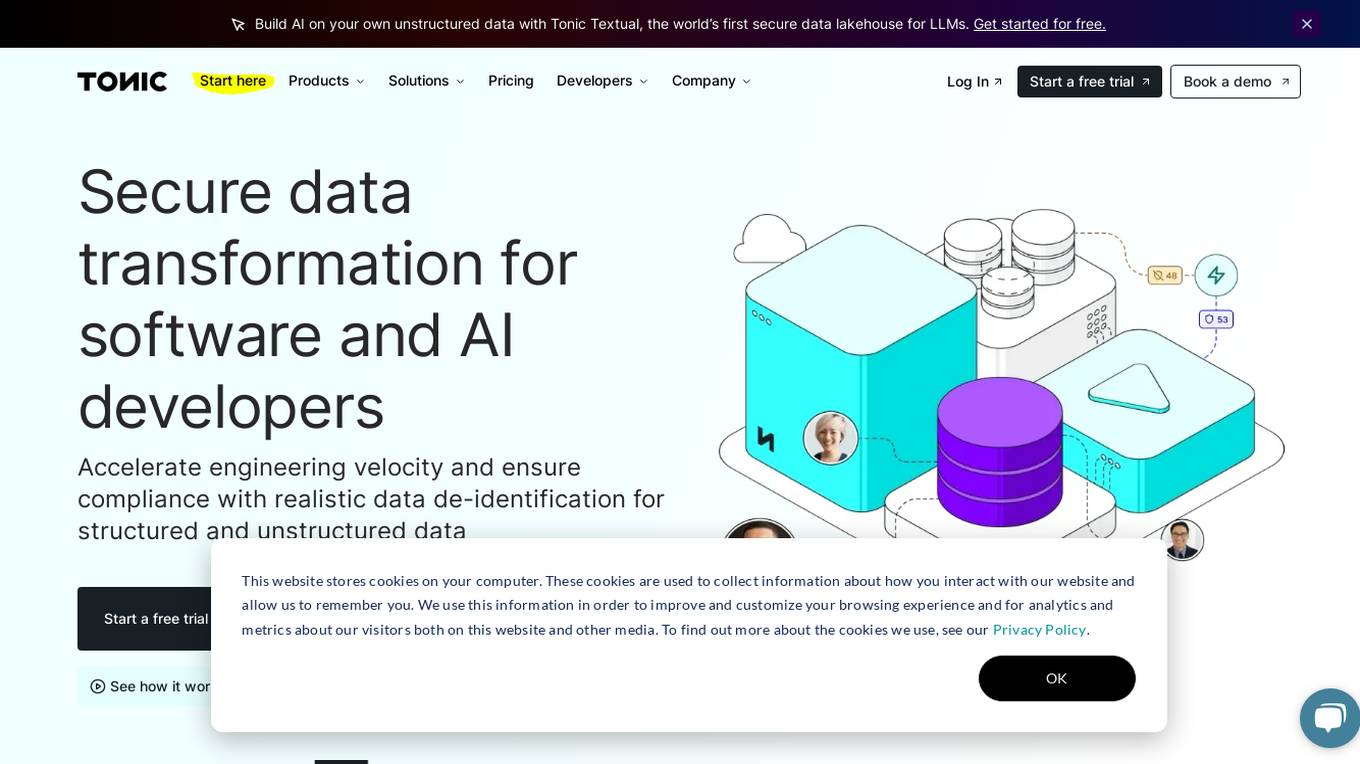Best AI tools for< Subsea Engineer >
Infographic
3 - AI tool Sites

Offshore Technology
Offshore Technology is a leading provider of news, data, and analysis for the global offshore oil and gas industry. The website covers the latest developments in exploration, production, offshore services and vessels, midstream energy, HSE, and more. Offshore Technology also provides in-depth analysis of the latest trends driving technology and innovation in the offshore industry.

DWE.ai
DWE.ai is an AI-powered platform specializing in DeepWater Exploration. The platform offers cutting-edge marine optics for crystal clear underwater imaging data, empowering marine robotics, surface vehicles, aquaculture farms, and aerial drones with advanced mapping and vision capabilities. DWE.ai provides cost-effective equipment for monitoring subsea assets, conducting detailed inspections, and collecting essential environmental data to revolutionize underwater research and operations.

Tonic.ai
Tonic.ai is a platform that allows users to build AI models on their unstructured data. It offers various products for software development and LLM development, including tools for de-identifying and subsetting structured data, scaling down data, handling semi-structured data, and managing ephemeral data environments. Tonic.ai focuses on standardizing, enriching, and protecting unstructured data, as well as validating RAG systems. The platform also provides integrations with relational databases, data lakes, NoSQL databases, flat files, and SaaS applications, ensuring secure data transformation for software and AI developers.